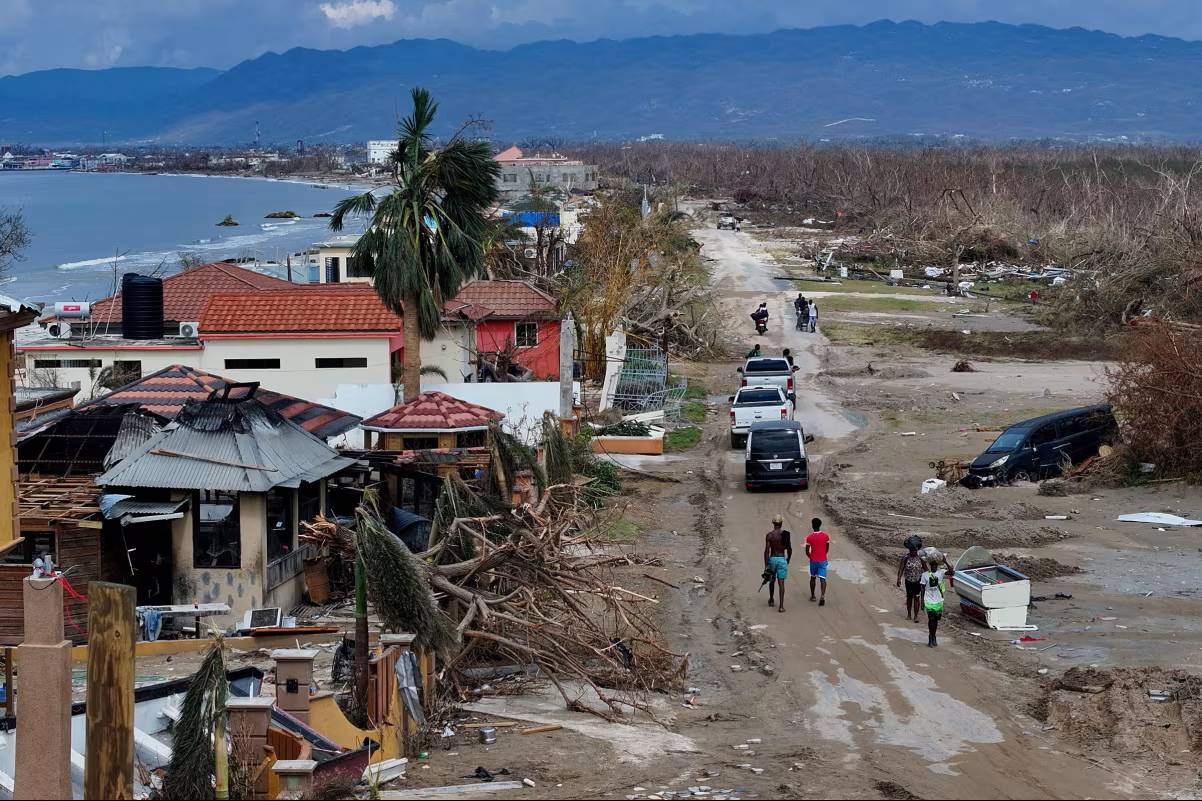Hurricane Melissa recently tore through the Caribbean, leaving a trail of destruction that disrupted lives, damaged infrastructure, and threatened food security. In Jamaica, the storm flooded St. Elizabeth, the nation’s agricultural heartland, while widespread power outages affected over 75% of electricity customers. Haiti and the Dominican Republic also faced devastating floods, claiming dozens of lives and displacing families. These recurring climate shocks highlight the region’s vulnerability to extreme weather events.
The aftermath of the storm revealed deeper economic and social challenges. Farmers lost essential equipment and seedlings, vendors were unable to operate due to damaged markets, and fishers saw their boats and docks destroyed. Tourism and service workers faced reduced shifts as hotels and ports underwent repairs. These individual losses ripple across communities, creating widespread hardship, particularly for those in the informal economy who are the backbone of local food systems and markets.
National governments have responded with emergency measures. Jamaica’s Prime Minister outlined immediate relief efforts, including road clearance, power restoration, and price controls to prevent gouging. A J$400 million fund was allocated for emergency drain-cleaning and support for farmers and fishers. The Ministry of Health launched mosquito-control operations to mitigate post-storm disease risks. Additionally, disaster-risk financing instruments were activated to ensure swift access to funds.
However, these national efforts often fall short in addressing the scattered, small-scale losses that communities face. Research by the Caribbean Policy Development Centre (CPDC) reveals that 79% of organizations serving vulnerable populations lack disaster budgets, leaving them without a safety net during crises. CPDC advocates for meso-level Climate and Disaster Risk Financing and Insurance (CDRFI), leveraging trusted local institutions like credit unions and cooperatives to deliver faster, fairer financial support. This approach includes parametric insurance for quick payouts, indemnity insurance for additional losses, and community savings funds for restocking and repairs.
CPDC emphasizes that while government aid is crucial for large-scale infrastructure, community-level financial systems are essential to protect livelihoods, food supplies, and dignity during recovery. The organization’s research, conducted across five Caribbean nations, calls for a regional discussion on practical, people-centered disaster finance. As climate threats become permanent, the Caribbean must transition from rebuilding from scratch each season to building resilient financial systems that enable faster recovery for farmers, fishers, vendors, and informal workers.
Protecting livelihoods is not just about economic stability; it’s about preserving the region’s knowledge, traditions, and community strength. CPDC invites Caribbean media, civil society organizations, governments, and financial cooperatives to join the conversation and implement solutions that turn disaster lessons into long-term protection.
